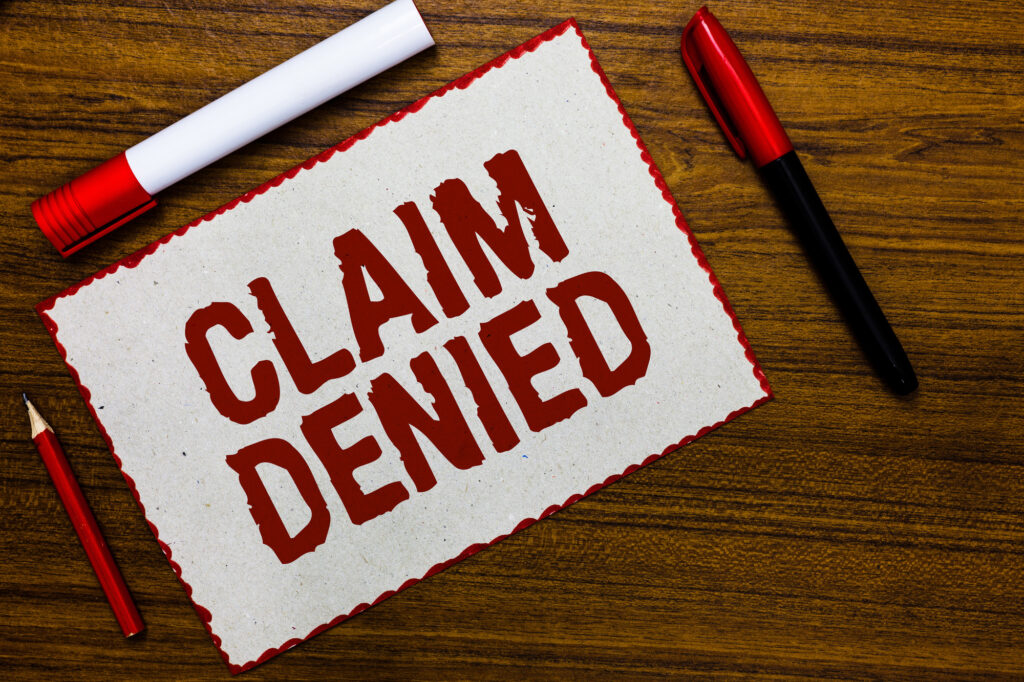Imagine investing countless hours in filing your VA disability claim, only to receive a denial letter. Or you don’t have to imagine it, and that’s why you’re here. Thousands of disabled veterans face the same challenge each year.
But what if there was a step-by-step guide to appeal your denied claim and secure the benefits you deserve?
If you find yourself at a loss of what to do after getting your VA claim denied, don’t despair. We’ve helped many in your shoes navigate the appeals process and can help you, too.
Don’t let a denial define your future. Fight for your VA disability benefits. The first step is understanding why! Read on to find out.
Why Was My VA Claim Denied?
Before you can appeal a claim denial, you must identify the reasons. The VA has a strict set of conditions for evidence and documentation. If you’ve missed anything, it’s likely you’ll get a denial.
Incomplete Medical Records
The VA may be looking for more than a diagnosis. They’ll want medical records about treatment plans and progress notes.
Lack of Continuous Symptoms
The VA may argue that the absence of documented symptoms indicates that the disability is unrelated to military service or that the condition is not chronic. So make sure you have medical records that prove a consistent history of symptoms related to your claimed disability.
Inadequate Nexus Statement
A nexus statement is a document that connects your disability to military service. You need a doctor to write it. And you have to have a definitive, iron-clad link between your condition and your time in service.
Absence of a Clear Diagnosis
The VA is looking for a definitive diagnosis from a qualified healthcare professional. If you can’t confirm that you have a service-connected disability, you’ll get denied.
Inconsistent Evidence
The VA needs to assess the extent of your disability. If your medical records are contradictory, you may end up with a delay or denial. So make sure your documentation is clear, consistent, and up-to-date.
Outdated Medical Records
Your medical evidence should be recent. If it doesn’t reflect your current condition, the VA might not consider it relevant to your case.
Lack of Service Connection
Don’t forget the obvious! You also have to show proof that you have served.
Missing Paperwork or Deadlines
Remember to keep your documentation deadlines. Missing paperwork or late submissions can result in a denial or delay in your claim. Always double-check that you have submitted all required documents on time.
Finally, review your denial letter. It should help you pinpoint the exact cause and determine the best action.
Evaluating Your Options After a VA Claim Denial
A denied claim isn’t the end. Once you’ve identified why the VA denied your claim, you have several courses of action.
File a Supplemental Claim
A Supplemental Claim allows you to submit new and relevant evidence to support your case. This option is ideal if you have more documentation that could strengthen your claim.
Request a Higher-Level Review
Based on the submitted evidence, you can request a Higher-Level Review to contest the first decision.
A more experienced adjudicator will review your claim without considering new evidence. This option is suitable if you’re confident that your existing documentation is enough to prove your case.
Pursue a Board of Veterans’ Appeals Hearing
You can opt for a Board of Veterans’ Appeals Hearing for a more formal review process. This choice allows you (or your lawyer) to present your case to a Veterans Law Judge. They will review your evidence and make a decision.
This choice is best if you prefer a thorough examination of your case and an opportunity to discuss any concerns yourself.
Preparing for the Appeals Process
Don’t walk into the appeals process unprepared. When you’re ready to appeal your denied VA disability claim, follow these steps to increase your chances of success:
Gather New Evidence
Find more records, service documents, and witness statements to strengthen your case. Ensure that the evidence is relevant and directly addresses the reasons for your claim denial.
Consult With an Expert
Consider seeking help from a Veterans Services Officer (VSO), an accredited agent, or an attorney. These professionals know how to handle VA disability claims and appeals.
The right professionals can help you gather evidence and prepare documents. A good attorney can even represent you during the appeal process.
An expert can help you get things right the first time, improving your approval odds. And that increases your chances of a successful outcome.
Stay Organized
Keep track of deadlines, documents, and correspondence related to your appeal. Maintaining a well-organized system makes all the difference. This will help you stay on top of your case and submit all the required information on time.
Reopen Your Disability Claim
If your appeal is unsuccessful, your claim will close. But if you uncover new evidence after that, you can reopen your disability claim.
You have to give new and relevant evidence to the VA to reconsider the original decision. This step allows you another opportunity to seek the disability benefits you deserve.
Securing Your VA Disability Benefits: Persistence Pays Off
We know that having your VA claim denied can be a painful experience. But with persistence, the right resources, and an understanding of the appeals process, you can increase your chances.
Reach out to Veterans Educating Veterans for guidance and coaching throughout the appeals process. We can help you navigate the complex VA system and provide valuable insight into preparing a solid appeal.
Veterans Educating Veterans is here to help guide you every step of the way. Contact us today for a free consultation. Don’t give up. Let’s start turning your denied claim into an approved one.

